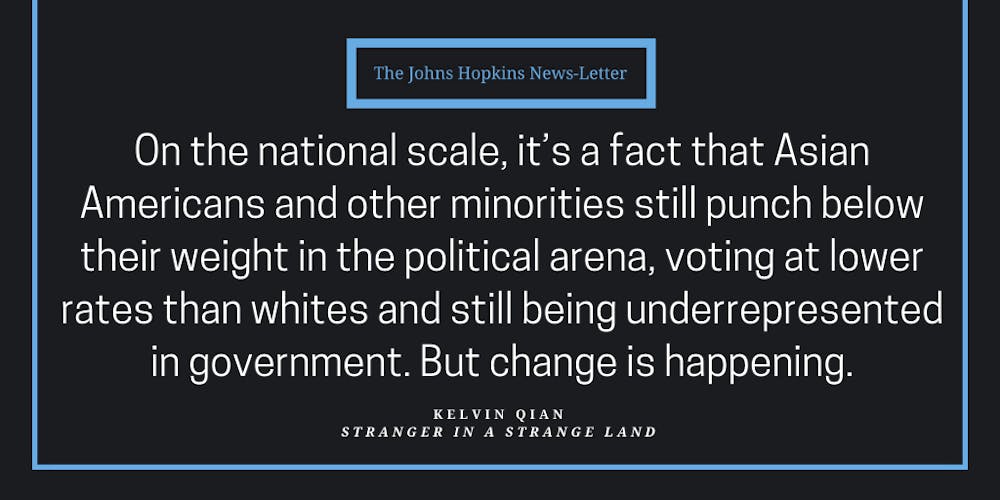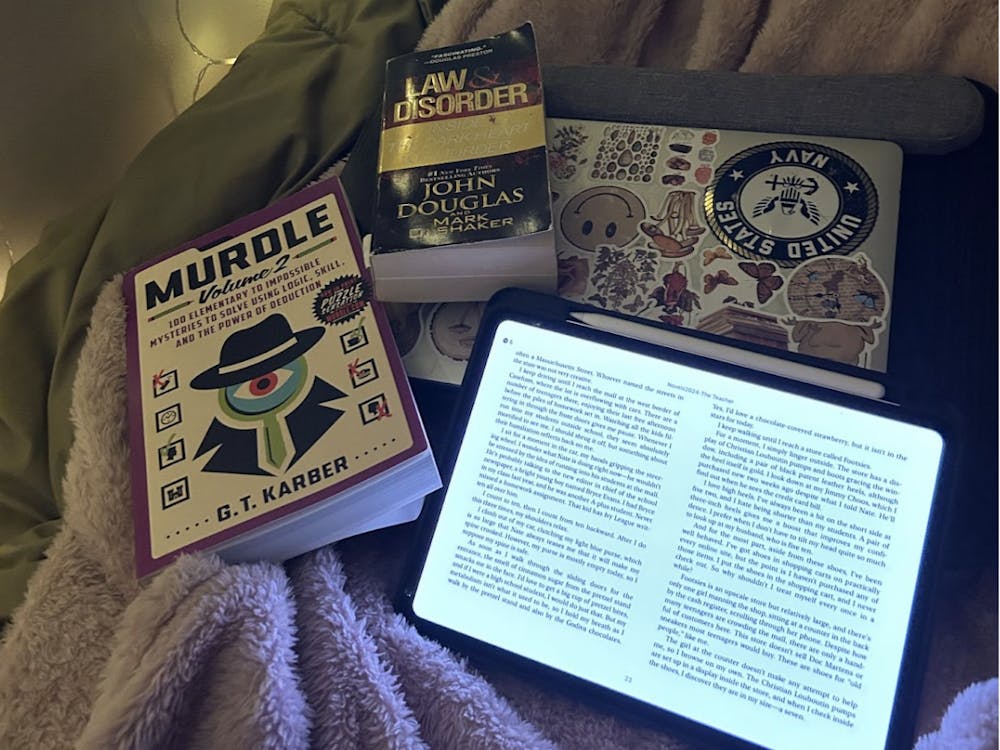
These days seem like a high-water mark for minority political representation. It seems especially so for Asian Americans, with prominent Asian American figures like Andrew Yang and Kamala Harris running for president and record numbers of Asians getting elected into office. But that’s all at the top — how much does that translate to my own experience as a politically active Asian American?
Let’s start with freshman year. I was still fresh from high school, filled with youthful passion to change the world. I wanted to do something related to Asian American activism, and at the Student Involvement Fair, the Inter-Asian Council caught my eye. Perfect, I thought.... Except that their Monday meeting times conflicted with Physics lab. Dang.
I also stopped at the College Democrats at Hopkins booth at the fair. They had no focus on Asian American issues of course, but that didn’t matter. It was an election year, and I wanted to support the Democratic side. And besides offering me free stickers and free cookies, I found that I had no time conflicts with their meetings. Great!
But after the first College Dems meeting, and during the next few years of being on their board and going to their events, I noticed a distinct lack of diversity. I was the only Asian member on their executive board and only one of two people of color in total; everyone else was white.
And we were supposed to be the more diverse party, they said.
Freshman fall came and went. Donald Trump blew everyone away with his victory, and lots of people wanted to take to the streets.
The day before I went to the first Women’s March in D.C., I told my mom about my plans. She was aghast. First, she barely knew anyone this invested in politics. She even told me that Chinese people here weren’t supposed to be this politically active. Second, she feared for my safety. She knows what happens when you protest in China, and she didn’t want to see that happen to me here.
But I went anyway, going with my friends and navigating the huge crowds at the National Mall. To my mom’s pleasant surprise, nothing bad happened. From what she saw on the news, everything was peaceful, and everyone looked like they were having fun. Indeed, I liked it so much that I decided to go to the March for Science protest later that spring against Trump’s anti-science policies.
But whenever I arrived at those protests, I was struck by the whiteness of the scene. Outside of my friend groups and some groups of black and Asian activists I saw, most of the people there were white people, young and old. It was a rather interesting demographic composition for a crowd dedicating itself to fight Trump’s racism.
My mom’s perception of Asian American activism, or lack thereof, wasn’t entirely true. When I took an Asian American politics course my junior year, my classmates and I learned about many Asian American political movements, from Hawaiian labor strikes in the 1900s to the Asian American activism in the Civil Rights Movement.
But her words still hold a grain of truth. On the national scale, it’s a fact that Asian Americans and other minorities still punch below their weight in the political arena, voting at lower rates than whites and still being underrepresented in government.
But change is happening, both at the top level and the bottom. While most of the people I saw at the marches were white, most of the friends I went with were people of color. Back on campus, I see activism by people of color, both in race-specific clubs like the Inter-Asian Council and outside of them, becoming stronger.
Even the aforementioned College Dems are changing. The previous years of mostly white membership may be over. In today’s College Dems GroupMe, I see people of all backgrounds — Hispanic, Jewish, Chinese American and Iranian American, to name a few — bring their perspectives to the table as they discuss politics and share memes.
Such has been the progress of four short years. Andrew Yang and Kamala Harris might not become president this election. But if what I see here on campus holds for the future, perhaps the next Yang or Harris has already been made.





